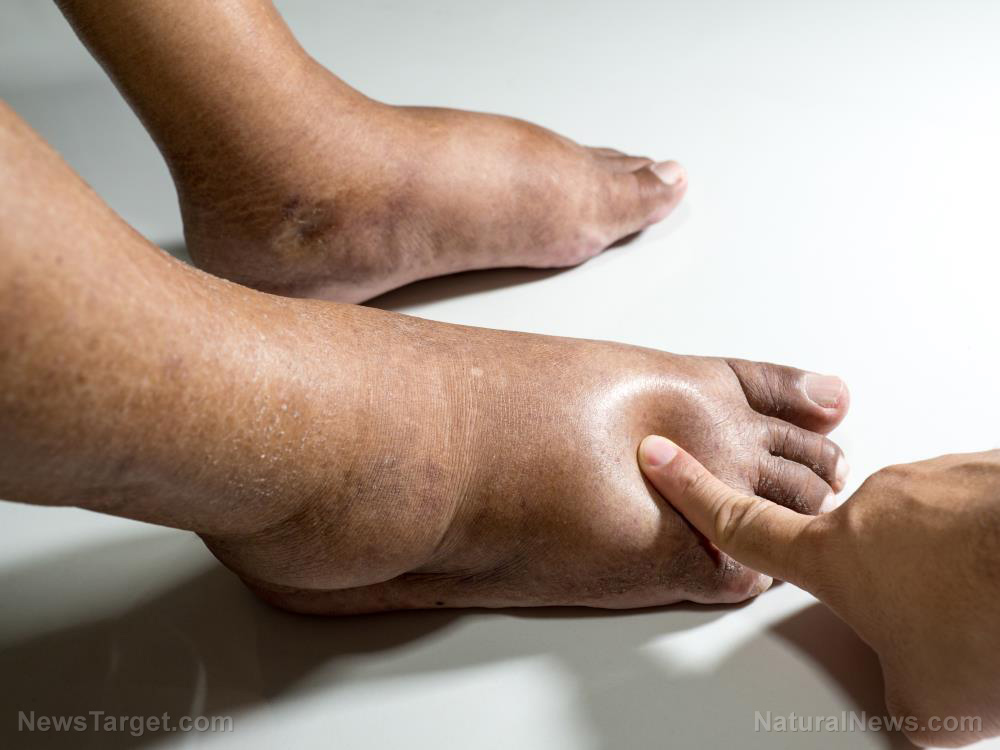Treating neurological disorders in children with oriental herbal medicine
08/09/2019 / By Melissa Smith

Experts say there are over 600 disorders of the nervous system. These include epilepsy, brain tumors, cerebral palsy, attention deficit hyperactivity disorder (ADHD), autism spectrum disorders (ASD), among others. Many of these emerge during childhood, and some can be diagnosed at birth.
Oriental herbal medicine has been widely used in treating neurological disorders in children and has gained attention for its safety and efficacy. A study published in The American Journal of Chinese Medicine confirmed that oriental herbal medicine is a promising treatment for several pediatric neurological disorders.
Researchers from Kyung Hee University in South Korea investigated the effectiveness of oriental herbal medicine in treating neurological disorders in children. For this, they gathered 16 systematic reviews comprising 169 randomized trials with 19,542 participants in total. These systematic reviews investigated the efficacy of oriental herbal medicines for neurological disorders in children.
Oriental herbal medicine, when used as an adjunct therapy to antiepileptic drugs, exhibited more significant improvements than those treated with the drugs alone. For cerebral palsy, children who received oriental herbal medicine scored significantly higher in the Activities of Daily Living (ADL) scale, which measured each participant’s ability to carry out daily tasks.
Based on these results, the researchers concluded that oriental herbal medicine may be a promising alternative treatment for pediatric neurological disorders such as epilepsy and cerebral palsy. However, they suggested more high-quality evidence is needed to make clinical recommendations on oriental herbal medicine use.

|
Discover how to prevent and reverse heart disease (and other cardio related events) with this free ebook: Written by popular Natural News writer Vicki Batt, this book includes everything you need to know about preventing heart disease, reversing hypertension, and nurturing your cardiac health without medication. Learn More. |
Causes of neurological disorders in children
Many neurological disorders are congenital, but some develop after birth. Those with an unknown etiology are called idiopathic. Neurological disorders can occur because of prenatal and perinatal causes:
- Toxins and environmental factors – Exposure to neurotoxins, such as alcohol, lead, mercury, tobacco, and some food additives, can damage a child’s developing system through the placenta during fetal development. These cause mental and behavioral problems.
- Nutritional deficiencies – Pregnant moms should get the most nutrients they can for the proper development of their baby. A deficiency of nutrients during the last three months of pregnancy can reduce the child’s brain cells. For example, a folic acid deficiency could result in a neural tube defect (NTD). (Related: Exposure to common fungicide causes neurological problems across four generations.)
- Infections – If a pregnant mom contracts an infection, it can be passed down to the baby and cause developmental abnormalities in the unborn child. It could be one of the TORCH infections, which stand for toxoplasmosis, other infections (hepatitis B, syphilis, varicella-zoster virus, HIV and parvovirus B19), rubella, cytomegalovirus, and herpes simplex virus.
- Childbirth complications – At birth, the skull is not yet fully formed, so it’s vulnerable to physical injury. Blood and oxygen supply from the umbilical cord can also become affected at birth, and lack of oxygen can cause brain damage.
- Prematurity or low birth weight – Low birth weight may imply growth problems during pregnancy and has been linked to a higher risk of developing attention, cognitive, learning, and speech and language problems, hyperactivity, and social difficulties.
Acquired causes are less common than congenital causes. These include:
- Immune disorders – Children with immune disorders can have problems controlling emotions, body movements, and experience seizures.
- Postnatal infections – A child may also develop a neurological disorder if he contracts infections, such as encephalitis and meningitis.
- Traumatic brain injury – An injury to the brain can impair brain functions and cause neurological problems.
Visit Herbs.news to read more articles on the potential benefits of oriental herbal medicines on neurological disorders in children.
Sources include:
Tagged Under: alternative medicine, brain function, brain health, Cerebral palsy, children's health, cognitive health, disease treatments, disorders, Epilepsy, food cures, herbal medicine, Herbs, natural cures, natural medicine, natural medicines, nervous system, nervous system disorders, neurological disorders, Oriental herbal medicine, Oriental medicine, remedies, research


















